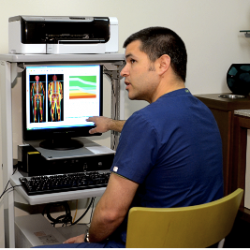The AAFP released an official statement on DPC. It’s going to bat for practices like ours. We especially like their word choice in their support for both doctors’ AND patients’ choice to embark on direct care. In our opinion, the free market principle of choice is what behooves our healthcare system, offering competitive options that eliminate red tape and incentivize innovation (like we’re doing with atlas.md). Couple that with increased public awareness of unfair, exorbitant costs associated with greedy pill makers and we might continue to see falling healthcare costs in the upcoming years.
“The AAFP supports the physician and patient choice to, respectively, provide and receive health care in any ethical health care delivery system mode, including the DPC practice setting,” says the policy. It notes that the model is structured to “emphasize and prioritize” the physician/patient relationship to improve health outcomes and lower costs
As Gandhi once said, Be the change you want to see. We are that change in primary care. But we’re human, too. We prefer receiving support, instead of resistance.
View the AAFP’s policy on Direct Primary Care here.



